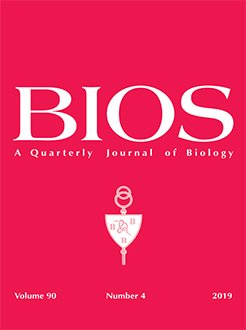Birds are endotherms with a unique thermoneutral zone, a temperature range where metabolic requirements are relatively consistent but increase dramatically when temperatures fall below the lower threshold. As the popularity of human-supplied bird feeders increases, so too does the need for a greater understanding of the effects of abiotic factors on the feeding behavior of wintering birds at these supplemental food sources. The main purpose of this study was to evaluate whether the level of bird activity at supplementary feeding stations increased with decreasing temperature to compensate for the increase in metabolic activity. To evaluate this, bird feeders were weighed at a supplementary feeding station over a period of six weeks and the level of bird activity was observed for an allotted time. To determine whether the trend in temperature and other abiotic factors was significant, a linear regression analysis was utilized for various measures of bird activity. There was no significant trend between temperature and bird activity. Two measures of bird activity and wind did show a significant positive correlation, however. It was concluded that the main reason the study did not demonstrate data supporting previous literature and the posited hypothesis was due to the lack of extremely low temperature days. The mild temperatures throughout the study failed to fall below the lower threshold, which did not necessitate an increase in feeding behavior to compensate for thermoregulation.
How to translate text using browser tools
10 February 2020
A preliminary investigation on the effects of abiotic environmental factors on supplemental feeding behavior in wintering bird communities
Sierra Williams,
Nathanial Watkins,
Stewart Skeate
ACCESS THE FULL ARTICLE

BIOS
Vol. 91 • No. 1
March 2020
Vol. 91 • No. 1
March 2020
metabolism
thermoneutral zone




